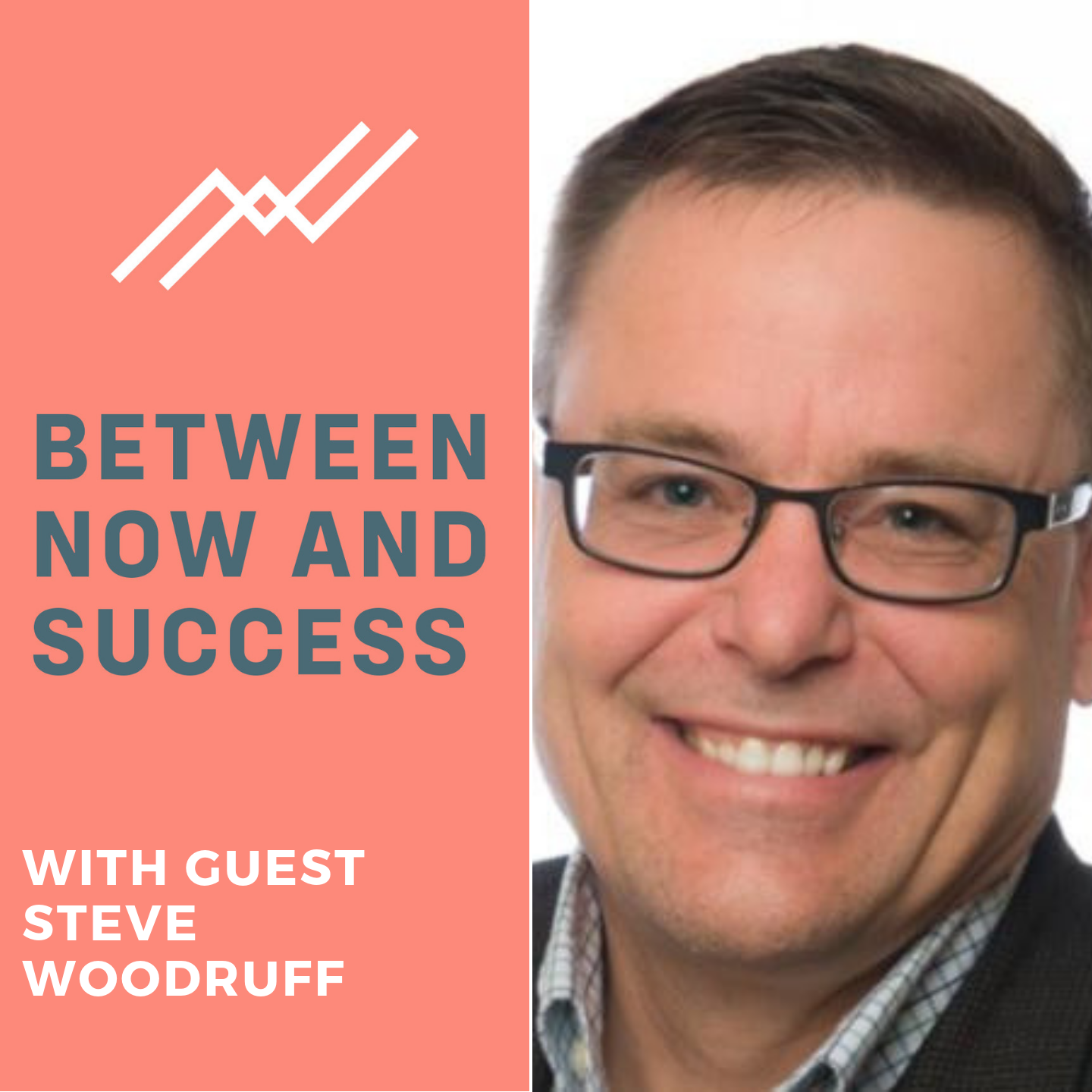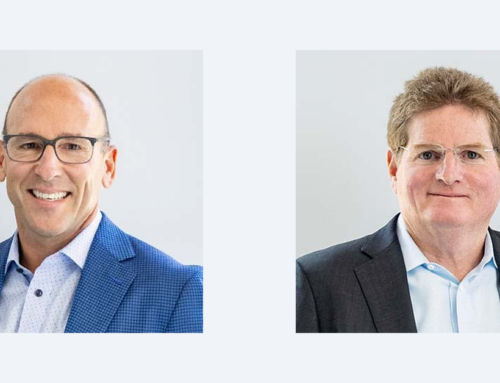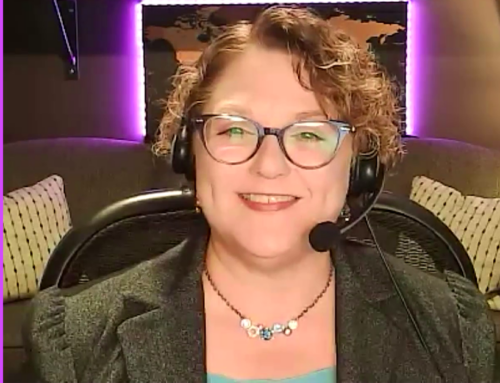I’m convinced that one of the keys to success is to have extreme clarity. But clarity can be difficult to define, and even harder to achieve. In our business, many advisors don’t do a thorough enough job defining themselves to an ever-more-crowded marketplace. “We help you achieve your financial goals” might fit well on your website’s masthead. But does a phrase like that really say anything meaningful about who you are as an advisor, what kind of value you bring to the planning process, and who your ideal clients are?
To help us all achieve some … well, clarity on these important issues, I sat down with the “King of Clarity.” My guest today is Steve Woodruff, who is in the business of helping people discover their fit and then craft the words that become their verbal business card. He’s also the author of a great book called “Clarity Wins: Get Heard, Get Referred.” In our conversation, Steve discusses the five questions he believes all business owners need to ask themselves about their branding and messaging, especially when it comes to your website.
And make sure you listen to the whole episode, because at the end we hold some advisor websites up to the King’s clarity standards. Steve’s feedback on the good, the bad, and the ugly of clarity will make you look at your own marketing in a whole new way.
(Don’t worry. Names have been disguised to protect the innocent. And the guilty.)
To learn the King of Clarity’s five questions to help you achieve business clarity, register for FREE below.
Five Questions to Help You Achieve Clarity in Your Business
1. What?
“What exactly is the thing that you do? Steve Woodruff asks. “The product that you have, the service that you have, the knowledge that you’re imparting, what’s the thing? It’s got to be in very practical terms that any human being can understand.”
Steve says that according to scientific research, you only have 15-30 seconds to grab a prospect’s attention before their brain gets bored and they click over to the next search result. That’s why a bland jumble of what Steve calls “commodity language” on your website can be such a mistake. There are probably dozens of financial advisors in your town who can help clients “plan for the future” or “achieve their goals.”
“That’s what I call a factual statement,” Steve says. “It’s factually correct, but anybody could say it. It has zero differentiation, and it’s boring. So what we have to do is have to take things like factual statements and turn them into something that has more personal emotional content.”
A glance at your website should let prospects know what you’re best at. Do you specialize in high-net-worth clients? Estate planning? Life-Centered Planning? Do you have a professional headshot and introductory video that communicate, “I’m nice, I’m going to be fun to work with, and I can help.”
The often overlooked part of your What is what you want prospects to do. That requires a clear “call to action” in a prominent space.
“My goal in my website now, in my business, is I want to get 20 to 30 minutes with somebody on the phone,” Steve says. “I have started gearing more and more of my stuff toward basically ‘Call me, call me, call me.’ That should be the goal of the website: what do I want them to do, and how quickly can I get them to do it.”
2. For Whom?
“There are seven and a half billion people on the planet,” Steve says. “You can’t serve all of them, and so we’ve got to narrow it down to the right combination of felt need and financial ability to pay and market position.”
This idea of really focusing on your ideal client has turned into a major theme this year on my podcasts and in conversations I’ve had with successful advisors. Smart advisors are starting to worry less about being pigeonholed and focus more on mining those niches for gold.
“You need to love your pigeonhole,” advises Steve. “’Oh, I don’t want to lose any opportunities. I don’t want to be pigeonholed.’ Actually, you do want to lose a lot of opportunities. You want to lose the wrong opportunities, and the way to lose the wrong opportunities and to help others recognize the right opportunities is to spell out your sweet spot, your pigeonhole.”
3. Why?
I believe that a key to future-proofing your business and increasing your value proposition is really understanding who your clients are, why they’re coming to you for help, and why they have the attitudes they have about money. Your client’s “why” could be a feeling. It could be a problem like job loss or paying for college. It could be a goal. Or it could be an unhealthy reaction to a money issue they experienced as a child.
“We need to understand what the client needs, what’s their pain, what is it that is driving them to make a decision,” Steve says. “The why is the emotional, personal, existential lever in the client that we want to push, and it’s going to be different for different groups of people. But if we know what it is, then we can aim our message correctly instead of having a website that says, ‘financial planning for the masses.’”
4. How?
Whether you know it or not, you have a superpower. It’s that thing that sets you apart, that thing that’s going to stop a prospect from swiping to the next site, the reason that your best clients refer you to everyone they know.
Anyone can manage a person’s portfolio – even an app. It’s how you approach the tricky areas where your clients’ money and lives intersect that makes you, well, super.
Steve shared an example of a superpower he uncovered during a recent clairty session with someone contemplating a career change:
“This individual had this unique skill combination that I’ve rarely come across, sort of the conductor role in an overall symphony. But he was stuck in a particular role in a particular sector of the market where he was defined by one thing. It was obvious that the way he’s wired, his DNA, his superpower is he doesn’t look at things in little isolated buckets. He looks at the big picture and figures out holistically how to make lots of things and people work.”
Seeing the big picture, keeping all the moving parts oiled — sounds like financial advisory is one area this person should investigate!
What’s interesting about this superpower is that the individual didn’t seem to realize he had it. If you’re unsure what clients value the most about you, try asking them. Include a two-minute survey in your next newsletter. Talk to a longtime client you have good rapport with. “You might be surprised that your differentiation point is something entirely different than you thought,” Steve says. “Your customers may be the ones that give you the clues as to what your real message is.”
5. Where?
“Where can be both virtual and literal,” Steve says. “The literal where can be are we local, are we regional, are we national, are we global? The virtual can be are we in a specific market sector or domain, like automotive or financial services or healthcare?”
Just don’t overlook the Where right outside your front door. I know some folks in the advisory community believe the local, mid-tier lifestyle practice is dead. But that’s not what I’m seeing. Recent podcast guests Dennis Morton and Katie Brown blew up Morton Brown from $0 to $120 million in AUM in just over a year by forging strong bonds with their “hometown” community in Allentown, PA. My good buddy Bill Keen is thriving in the Kansas City metro area because he’s relentless about hosting local events and putting out weekly content that appeals to his niche.
Maybe the most important thing that advisors who are succeeding at this level seem to have in common: they love what they do.
And that might be the biggest benefit that achieving clarity has to you as the business owner. Not only will you be broadcasting a better, more-focused marketing message, but that message is going to attract exactly the kind of people you’re going to enjoy working with, and exactly the kind of people to whom you can bring the most value.
Resources
– Clarity Fuel Connect with Steve Woodruff at his new website.
– “Clarity Wins” Get your copy of Steve Woodruff’s latest book.
– “An Elegant Defense” by Matt Richtel Steve Woodruff says the author of this book about how our immune system works “writes in such an engaging and interesting way about a very complicated topic that I not only love the topic, I’m just enjoying the writing style. It’s wonderful.”





